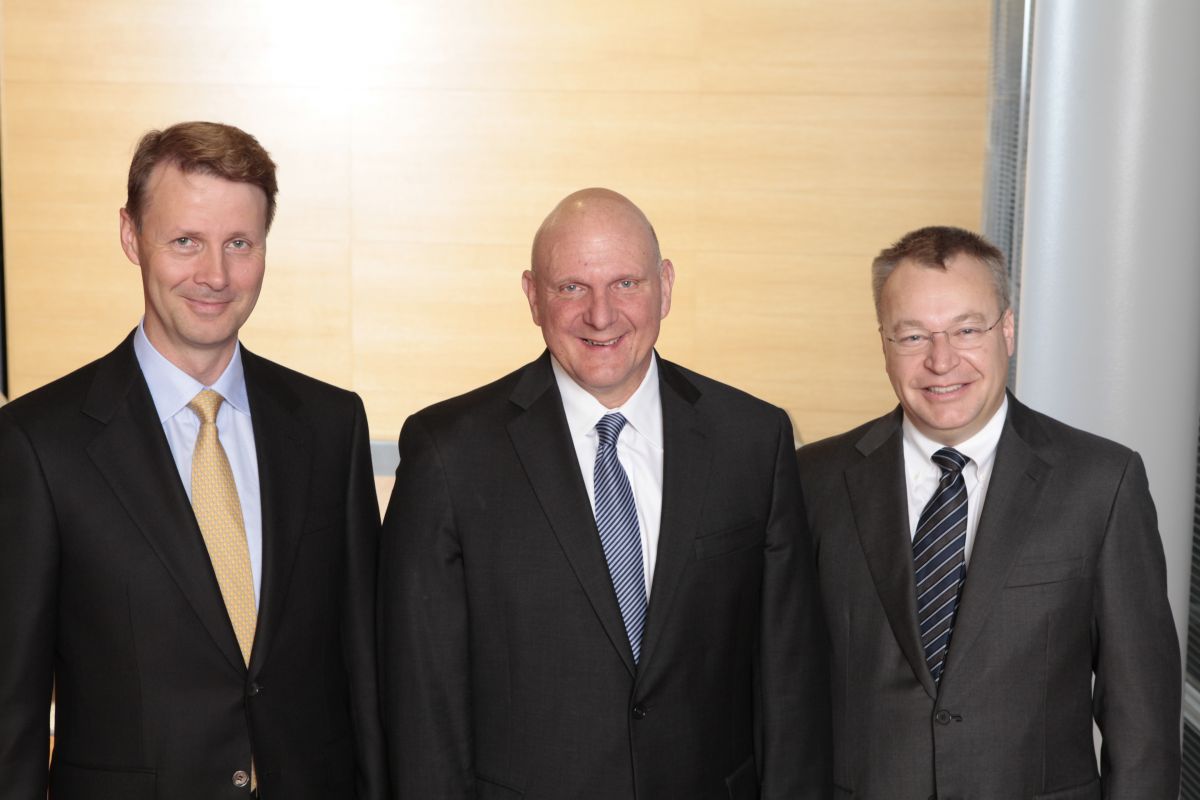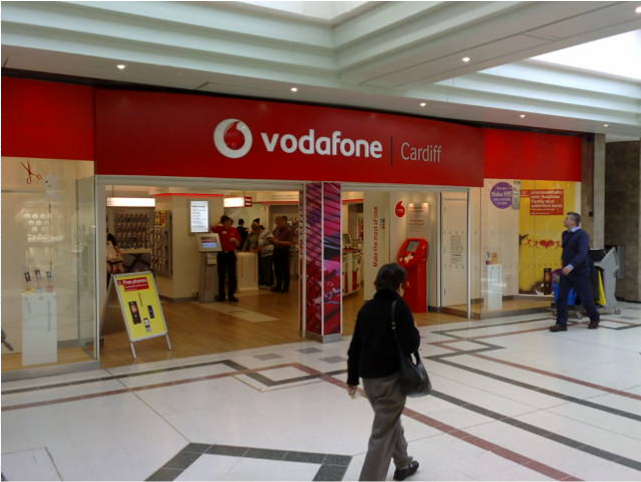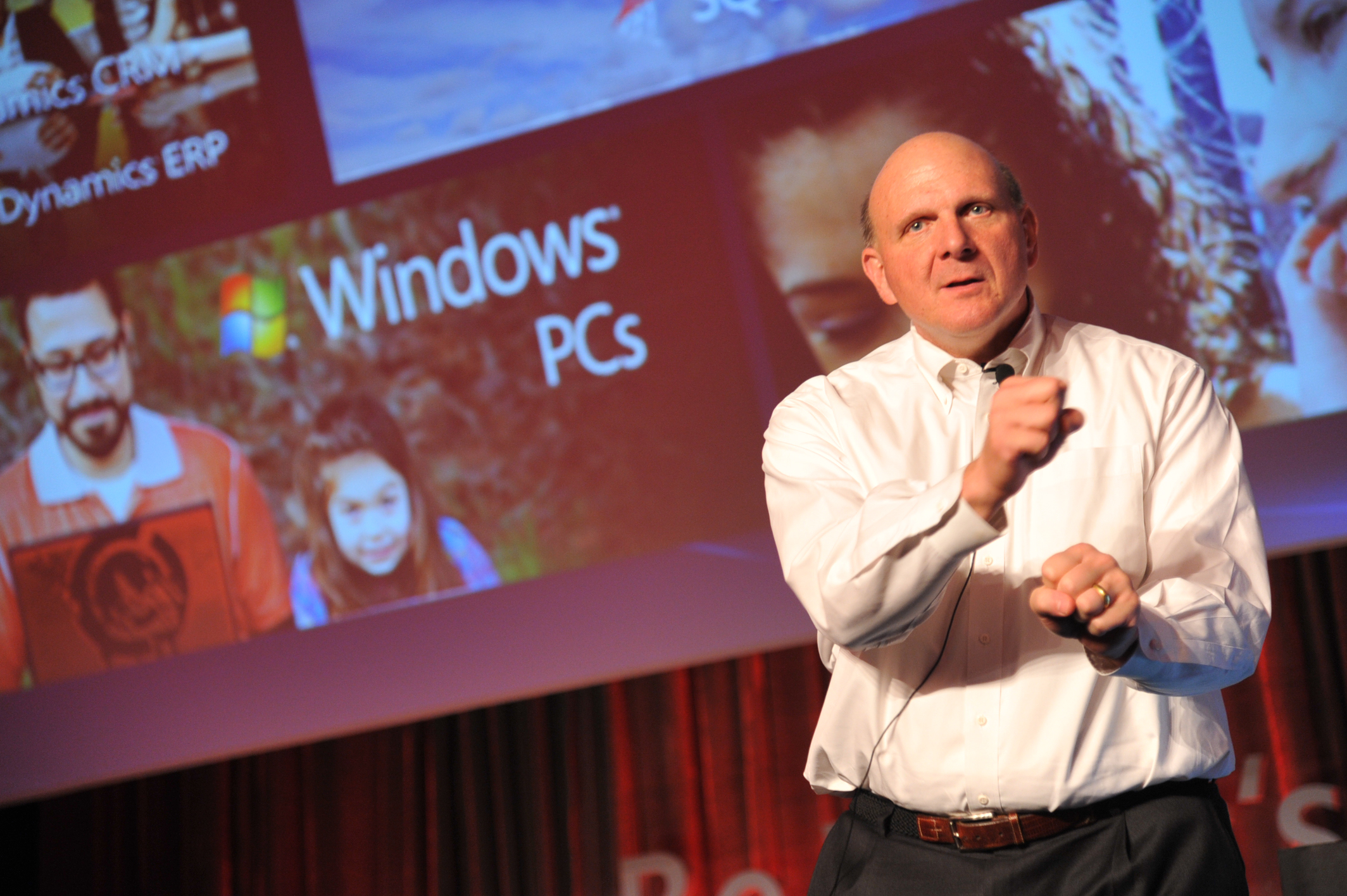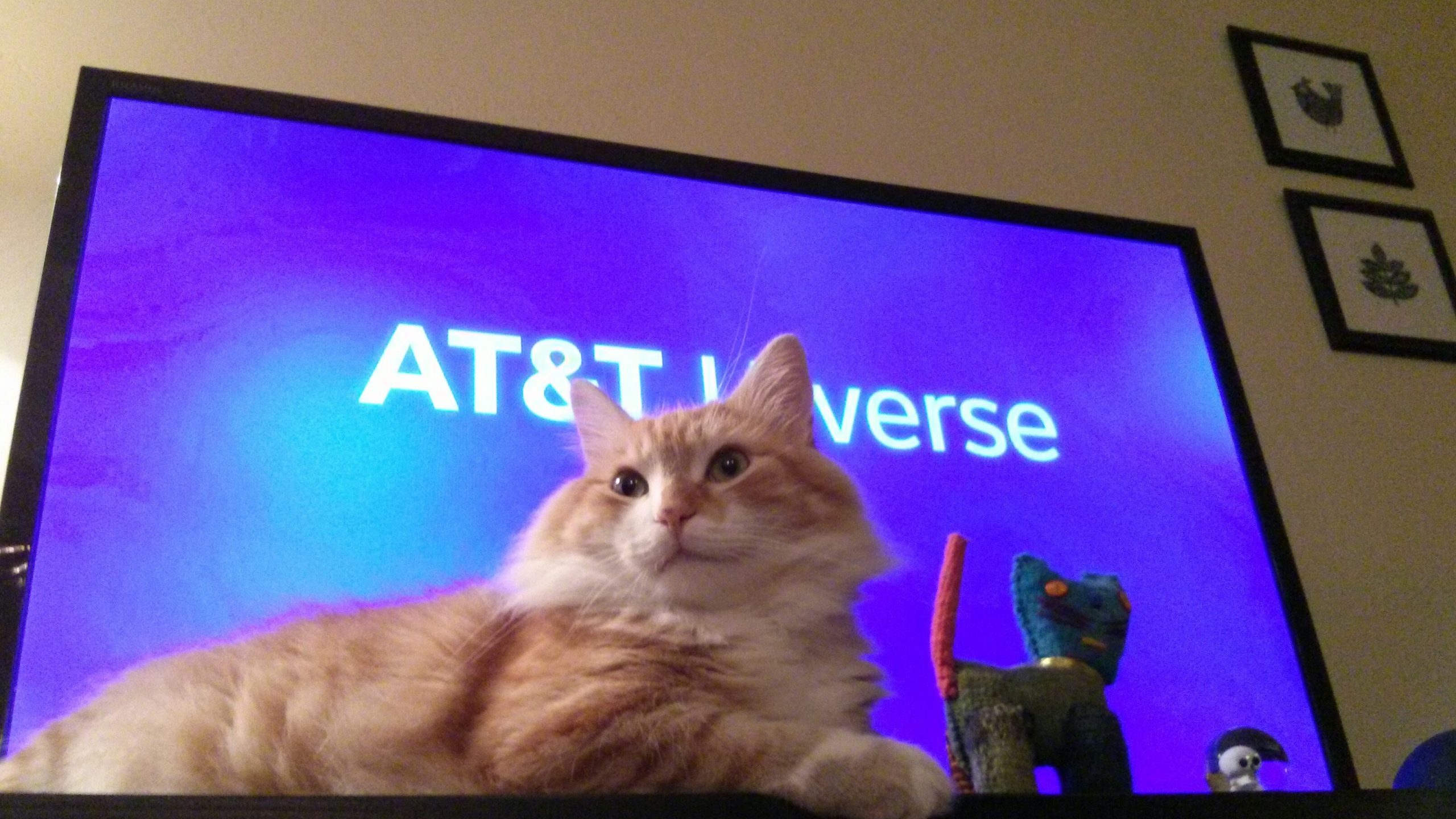
Lastpass sold to LogMeIn -- should Linux users panic?
Cloud-based password managers are amazing solutions for keeping your login credentials safe and secure. I used to trust Google Chrome for this, but I did not want to be tied to one browser. Ultimately, I settled on Lastpass. My reason was simple -- it supports Linux, as it is entirely browser-based. The beautiful 1Password, and other alternatives, do not work on Chromebooks or my favorite open source distributions, sadly.
Today, however, Lastpass drops a bombshell, announcing it has been bought by the company LogMeIn. I am not familiar with this new owner, but many people are unhappy -- the comment section on the announcement is full of outrage. If you only use Windows, Mac, iOS or Android, there are alternatives, so you can switch if things get bad. Users of Chrome OS, Ubuntu, Fedora and other such operating systems? Not so much. Should we Linux users panic?

Nokia sells HERE to Audi, BMW and Daimler for €2.8 billion
It's finally official. Nokia today announced the sale of its HERE division to German car makers Audi, BMW and Daimler. The mapping and location services business is probably best known for powering products offered by major tech companies like Baidu, Facebook and Microsoft.
Audi, BMW and Daimler have agreed to pay €2.8 billion ($3.07 billion at the time of writing this article) to gain ownership of HERE, with Nokia expecting to receive "slightly above €2.5 billion", after factoring in "certain defined liabilities" coming in at just under €300 million. Not too shabby, but well below the rumored asking price of $4 billion.

2015 is the year of 'merger mania'
I was recently reading in Forbes Magazine that the U.S. has had the best first quarter for mergers since 2000 with $414.7 billion (£267 billion), and it was the best first quarter ever for Asian (non-Japan) M&A with $199.7 billion (£128 billion).
In fact, the first quarter of 2015 will go down as the richest first quarter for mergers and acquisitions since Q1 2007. According to data from Thomson Reuters there has already been more than $843 billion (£543 billion) in global M&A activity this year. That’s 23.3 percent higher than the $694 billion (£447 billion) of M&A activity in the first quarter of last year, and nearly 72 percent higher than Q1 2013.

Nokia's Devices & Services business now in Microsoft's hands
Finnish maker Nokia announced, only moments earlier, that the sale of its Devices & Services business to Microsoft is now complete. The deal was announced in early-September 2013, and was initially expected to complete in the first quarter of this year, but faced regulatory delays which pushed the sale by a month past the original time-frame.
Nokia expects to receive slightly more from this transaction than the initial estimate of €5.44 billion. As expected, the Finnish maker's Chennai Indian factory will not be transferred to Microsoft, due to the local government freezing the asset, and neither will the Masan one from South Korea. The deal is not solely about hardware, as Nokia has also licensed patents and various usage rights to Microsoft.

Blackberry may have found a buyer -- but is there any value left?
Technology moves at a feverish pace. It feels like only yesterday that the iconic Blackberry was the market leader for smartphones. However, fast-forward to 2013 and we see a struggling company laying off 4,500 employees and losing close to a billion dollars in one quarter alone. On August 13, Blackberry (formerly known as RIM) announced the possibility of selling itself, hinting at strategic alternatives.
Today, Blackberry announces that "it has signed a letter of intent agreement under which a consortium to be led by Fairfax Financial Holdings Limited has offered to acquire the company subject to due diligence". In other words, it is exploring being bought by Fairfax.

Microsoft-Nokia Deal: a tale of desperation
After Microsoft announced that it was acquiring substantially all of Nokia's devices & services business, the stock market painted a fairly accurate picture of what this deal means -- Nokia investors were relieved as the stock surged by nearly 35 percent, while Microsoft investors responded by driving the stock down by 5 percent. Based on my prior experience in technology M&A (Mergers and Acquisitions), I wanted to take a look at the motivations for the transaction and the viability of Microsoft's long-term consumer strategy.
Let's begin by taking a look at the deal terms. Microsoft will be paying Nokia €3.79 billion for its handset division (including 8,500 design patents) and another €1.65 billion in patent licensing. As a part of the deal, Microsoft will gain rights to the Lumia and Asha brands, but Nokia will retain the rights to the "Nokia" brand. However, Microsoft has licensed the "Nokia" brand, exclusively for use on low-end S30/40 feature phones.

Vodafone sells its share of Verizon Wireless for $130 billion
Vodafone, the UK-based communications company, has sold its 45 percent share of Verizon Wireless to US telecoms group Verizon Communications in one of the biggest deals in corporate history.
The $130 billion deal was announced yesterday after the close of the London stock market but Vodafone's shares had risen 3.4 percent during the day on the back of rumours that it was going to take place. Around 70 percent of the proceeds will be returned to shareholders in a special bonus payout during the first quarter of 2014. Investors will have a choice of receiving this in cash or Verizon shares. Vodafone chief executive Vittorio Colao describes the payout as being a reward, "for the long term support of our strategy since our initial investment".

Steve Ballmer addresses Microsoft employees, following acquisition of Nokia's Devices & Services
Earlier today, Microsoft announced that it is buying Nokia's Devices & Services business and licensing the rights to use the Finnish company's patents, in a deal which will cost the software giant a mere €5.44 billion in cash. Microsoft will pay €3.79 billion for the phone-making arm and another €1.65 billion to take advantage of the patents. Also included in the terms of the arrangement is a separate HERE license, which will give Microsoft the right to use Nokia's mapping services in its products.
Following the announcement, Microsoft CEO Steve Ballmer sent out an email to the software giant's employees, explaining what the purchase of Nokia's phone-making business entails for Microsoft's corporate structure as well as its future strategy. Ballmer previously revealed that he will retire within a year. Coupled with the latest news, this will undoubtedly further fuel the already heated debate, surrounding his successor.

Microsoft to buy Nokia's phone business for just €3.79B
That's not a bad deal -- far from it, in fact. Nokia is leading the pack on Windows Phone sales, has a broad patent portfolio and a former Microsoft executive -- Stephen Elop -- as CEO. The software giant is buying the Finnish company's Devices & Services business -- its phone arm -- and the right to use its patents for just €5.44 billion. Yes, that's right -- just €5.44 billion.
That is considerably less than what Microsoft paid for Skype -- $8.5 billion -- in 2010. Both deals involve trading cash, but whereas the latter has yet to bear fruit across all of Microsoft's services, the former is actually at the forefront of turning Windows Phone -- the software giant's smartphone operating system -- into a solid mobile proposition and competitor to Android and iOS. Not a bad deal.

Microsoft dumps Mediaroom
Is IPTV an epic fail, or just for Microsoft? Ericsson is buying Mediaroom, ending weeks of rumors and leaving me (and presumably others) wondering what this means for Xbox 720 (or whatever Microsoft calls it) as an entertainment hub. Perhaps the visionaries up in Redmond, Wash. see something the Stockhom, Sweden-based telecom equipment giant should: IPTV has no long-term future.
Mediaroom is great. I've used the product since February 2008, when AT&T U-Verse came to the neighborhood. The program guide is straightforward and functional, and there are lots of trendsetting features, or were. Not much changed over the past two years, even while rivals added more HD-channel recording capabilities, among other enhancements. Many of the best, early features, such as streaming recorded shows among other boxes in the home, are mainstream from rivals. Mediaroom was not high on Microsoft's priority list.

Amazon acquires Goodreads
I guess reviews just aren't enough. Social matters more. Late today Amazon and Goodreads reached a merger agreement, in a deal expected to close second quarter. The companies did not publicly disclose terms.
Goodreads is a recommendation service with social sharing capabilities. Founded in 2007, the the company claims 16 million members and 23 million reviews, but the magic comes from the social aspect. If you ever wanted to snoop in a friend's bookshelf, Goodreads lets you do something just like that -- recognizing reading recommendations from people you know can be more influential than professional reviewers and other strangers.

The trick to stealing Hollywood is...
Third in a series. Some readers of my last column in this series seem to think it was just about the movie business but it wasn’t. It was about the recorded entertainment industry, which includes movies, broadcast and cable television, video games, and derivative works. It’s just that the movie business, like the mainframe computer business, learned these lessons first and so offers fine examples.
Whether from Silicon Valley or Seattle, technology companies see video entertainment as a rich market to be absorbed. How can Hollywood resist? The tech companies have all the money. Between them Amazon, Apple, Google, Intel and Microsoft have $300 billion in cash and no debt -- enough capital to buy anything. Apple all by itself could buy the entire entertainment industry, though antitrust laws might interfere.

Get ready for the Google ToiletSense algorithm
This may seem like a distraction from my theme of Silicon Valley and Hollywood, but please stick with me for a moment as we consider the fate of Blake Krikorian, who is best known for the Slingbox and now seems to be selling his current company, the awkwardly named Id8 Group R2 Studios. I think Krikorian’s career arc and our fascination with it give some insight into the whole tech-vs-Hollywood theme, showing how aimless and confused are some of these big technology companies.
The post I read that got me thinking in this direction came from Kara Swisher at allthingsd.com, which is part of the Wall Street Journal. Krikorian is reportedly selling his home automation startup to Amazon or Apple or Google or maybe Microsoft -- in other words the usual suspects. Amazon may be now out of contention because Krikorian just resigned from the Amazon board. But in any case, Swisher says, they all want Krikorian because "he is considered one of tech’s most savvy execs with regard to video and media distribution". Yeah, right.

Red Hat acquires ManageIQ
Concurrent with third-quarter earning results late this afternoon, Red Hat announced plans to acquire ManageIQ, an enterprise cloud provider. The all-cash deal is for $104 million. Red Hat is uniquely positioned, opportunity and risk, for enterprise server consolidation and transition to private clouds -- for which virtualization is a linchpin technology. The Raleigh, N.C.-based company plans to expand its own capabilities by fitting ManageIQ's monitoring and management tools onto existing solutions.
Red Hat's acquisition rides the cusp of a trend. Last month, IDC forecast big cloud-related mergers for 2013 -- totaling $25 billion over 20 months. The analyst firm sees three converging trends vertically related. "The IT industry as a whole is moving toward the mobile/social/cloud/big data world of the 3rd Platform much more quickly than many realize: from 2013 through 2020, these technologies will drive around 90 percent of all the growth in the IT market," Frank Gens, IDC chief analyst, says. "Companies that are not putting 80 percent or more of their competitive energy into this new market will be trapped in the legacy portion of the market, growing even slower than global GDP.
Qualcomm invests in Sharp to speed release of new low power mobile display
Qualcomm on Tuesday announced that it will become a minority shareholder in Japanese consumer electronics company Sharp via Qualcomm subsidiarly Pixtronix. The investment focuses on display technology and follows Qualcomm's long-running interest in new mobile display technology with a small energy footprint.
For the last three years, Qualcomm has shown off an impressive MEMS-based full-color e-reader screen called Mirasol which went into commercial production this year and now appears in e-readers from Hanvon, Bambook, and Kyobo.
